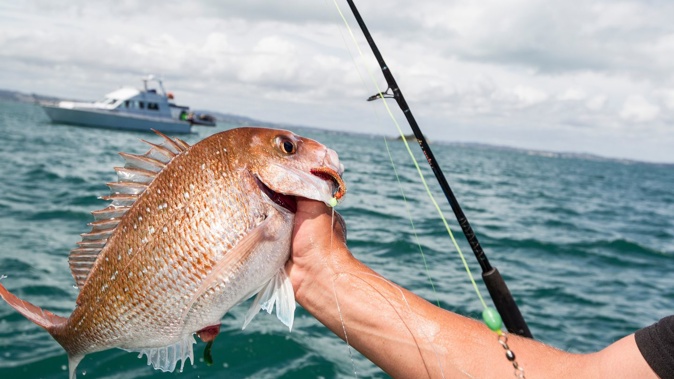
As the cost of living bites, more people are fishing and diving in dangerous conditions to put food on the table.
Water Safety New Zealand chief executive Daniel Gerrard said the organisation was hearing stories from up and down the country of people taking a risk to feed the whānau.
The organisation’s figures showed so far, drowning deaths were up on this time last year - 75 already, versus 80 for last year.
Gerrard said for many, fishing and diving isn’t just a pastime, it’s a cheap way to feed the family - and some simply can’t afford bad weather getting in the way.
“We’re hearing it anecdotally from so many places now that risks are being taken in some of these situations out of a need, rather than a want.
“So, people are going rock fishing on days when no one should be on those rocks, because they need to put some food on the table.”
Gerrard said there was also a spike in dive gear sales on Trade Me, but no increase in diving qualifications, indicating divers may not have the right education to stay safe.
The organisation’s research into deaths from kai gathering showed those who die while fishing from a boat were mostly older men.
Those angling from land were often Asian men aged around 45, and those diving for kaimoana were usually Māori men around 40.
Risk not worth an empty seat at the table
University of Otago PhD student Ben Hanara, of Ngāti Kahungunu, researches how collecting kaimoana influences Māori health and wellbeing.
He said kai gathering is of huge importance to Māori, who are over-represented in Aotearoa’s drowning statistics.
“It’s connecting to our environment, which is connecting to our atua, which is connecting us to, you know, that whole holistic approach of wellbeing and understanding our world.
“At the same time, it can be a very dangerous place to connect with if you don’t go in with the right mindset, with the right tikanga and safety measures.”
The holiday season is when people take the most risks, he said.
A man catches a snapper in the Bay of Islands. Photo / Stuart Machay
“There’s that mana you want to hold of being able to provide for your family, the luxuries of, like, kaimoana.”
Hanara said telling people not to go fishing and diving in dangerous conditions risked stepping on that mana - but not returning home after a trip to the coast is a bigger risk.
“Your whānau would rather have you there without that kaimoana, than you not there, and also not the kaimoana.”
While staying out of the water in rough conditions is the number one way to say safe, education is also paramount.
Have ‘respect for Tangaroa’ - diving expert
Dive Otago director Virginia Watson said the organisation delivers kaupapa Māori courses in the region. They teach people about the whole process of diving, she said, and there are some fully funded places for Māori and Pasifika people.
“Right from all of the things you do before you enter the water, you make sure you’re mentally fit to dive, and physically fit to dive, how you look at the conditions, and then all the safety procedures that you need to be aware of in the water should something go wrong.”
Watson urged people to carefully assess conditions before they catch a feed.
“The moana is such an amazing place to be at this time of the year, we get so excited.
“And just having respect for Tangaroa. He can be beautiful and calm and refreshing but that can change really rapidly, so just having respect for that atua will lead to a better day.”
- RNZ
Take your Radio, Podcasts and Music with you

/cloudfront-ap-southeast-2.images.arcpublishing.com/nzme/WSIEUX6TFVFT3FQAR6KGJGLBTI.JPG)








